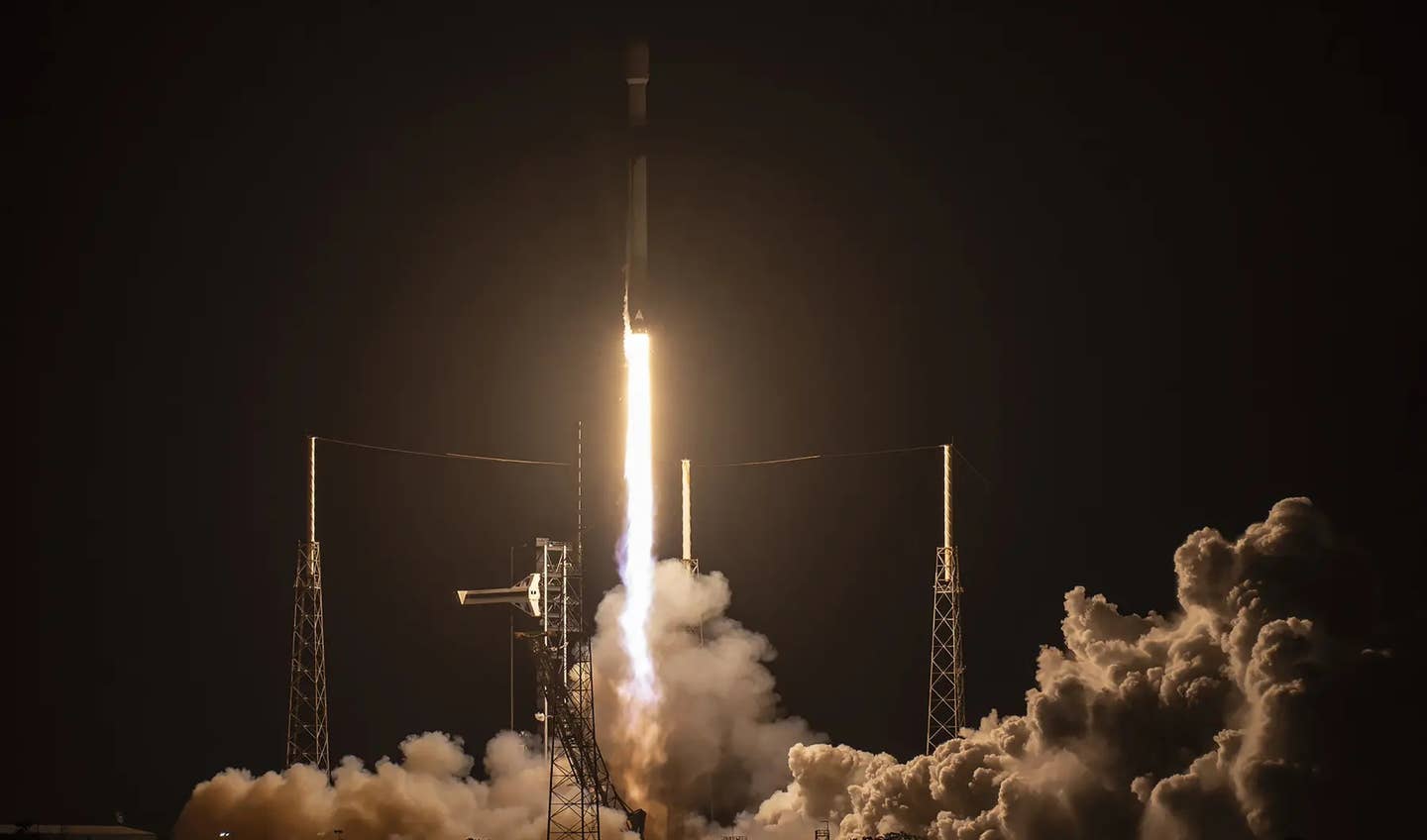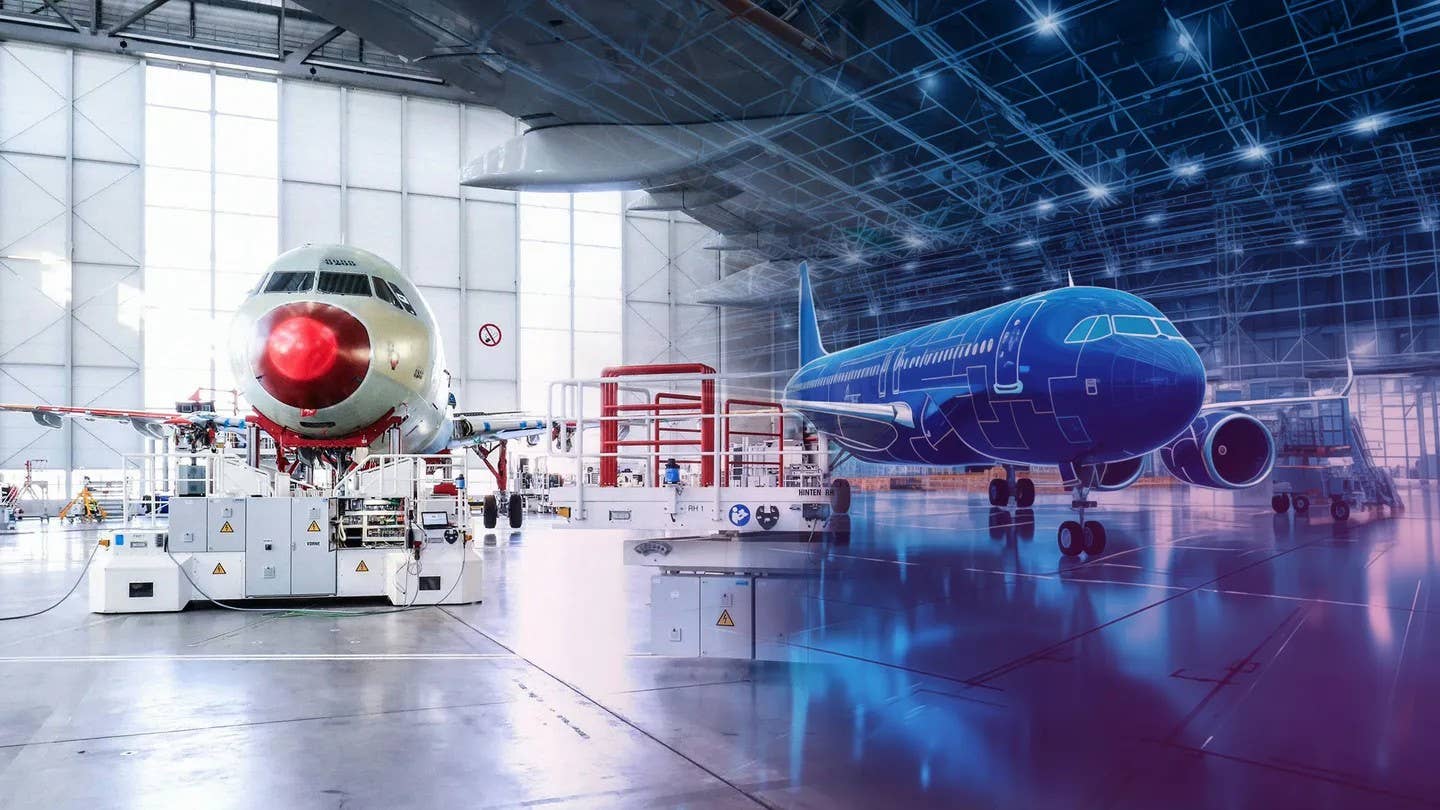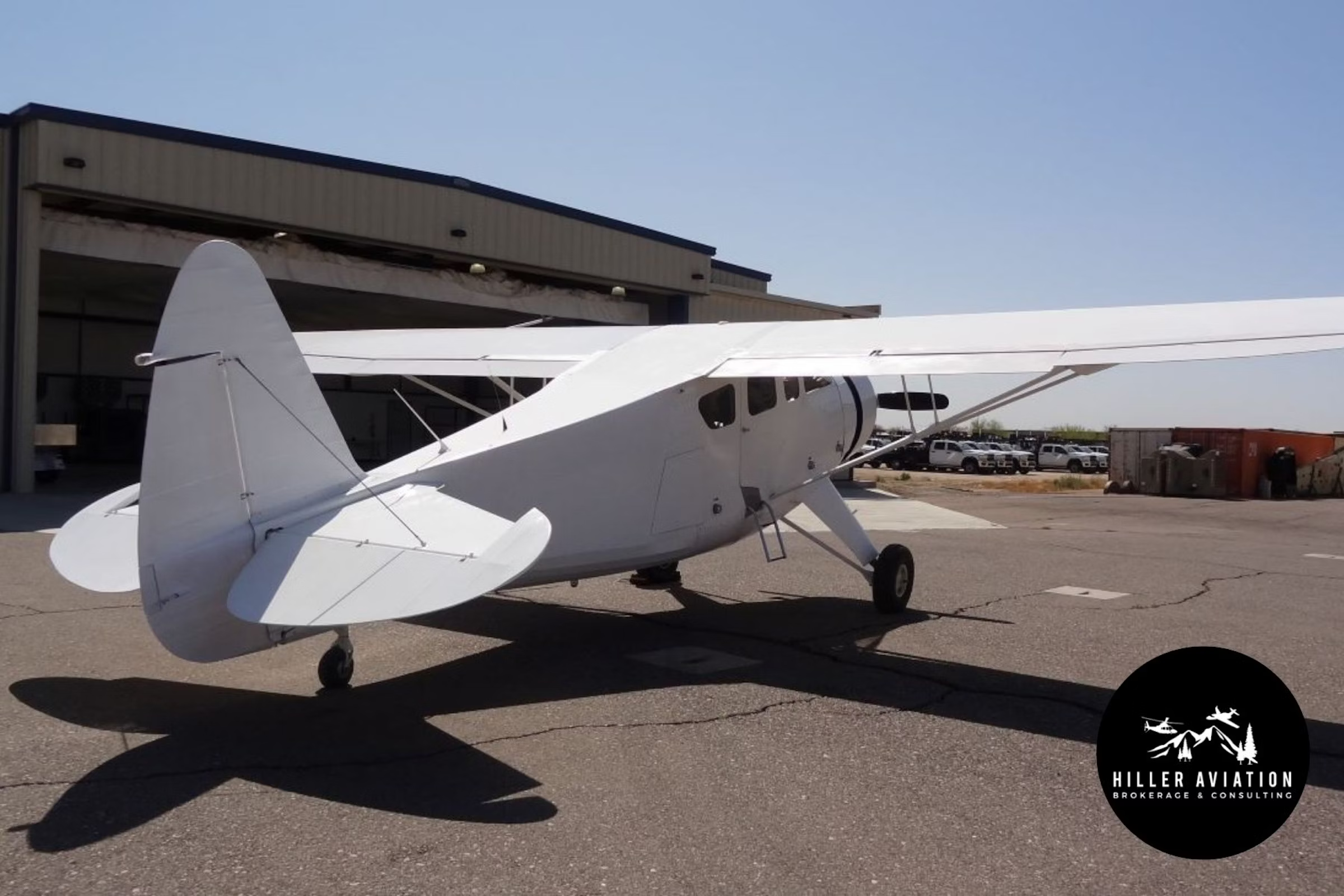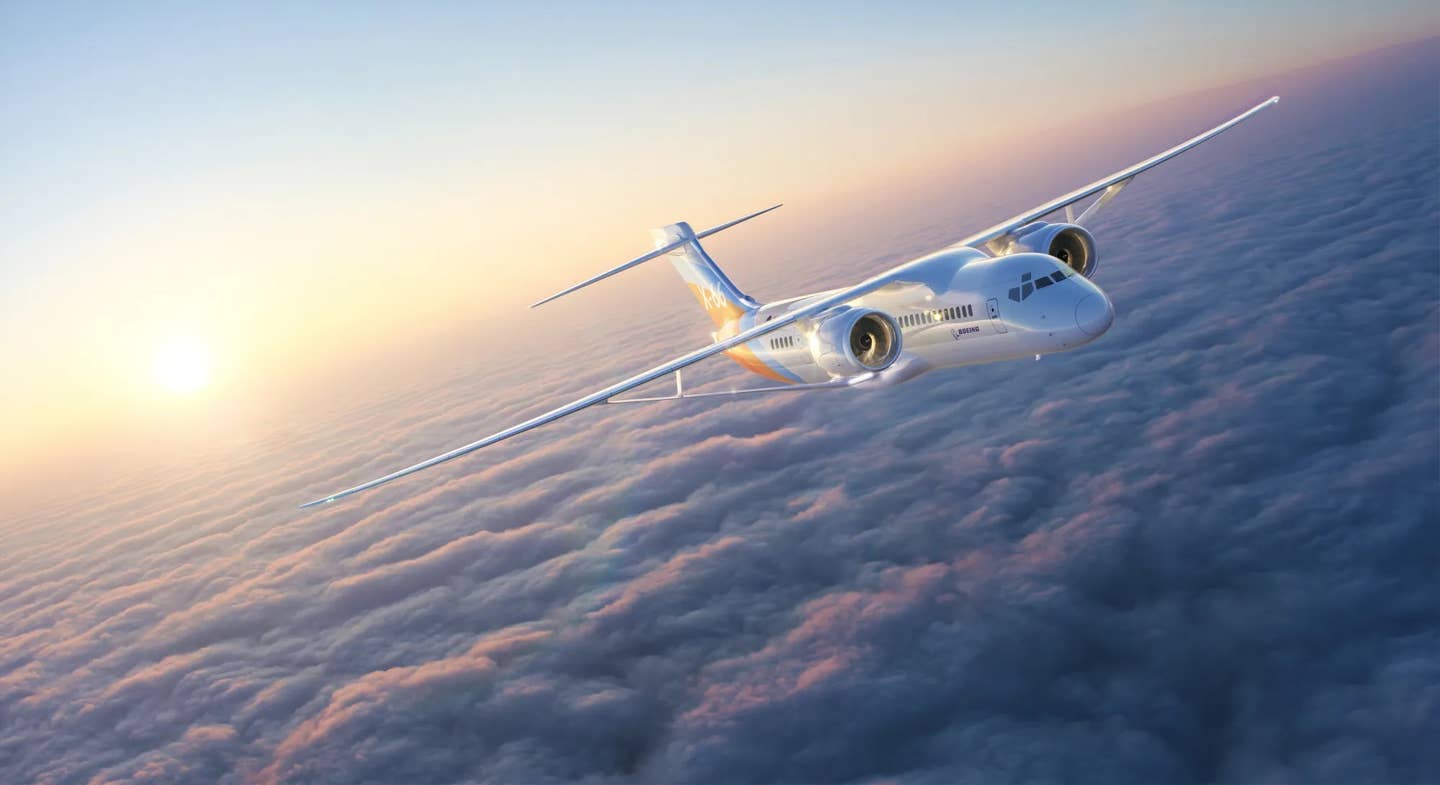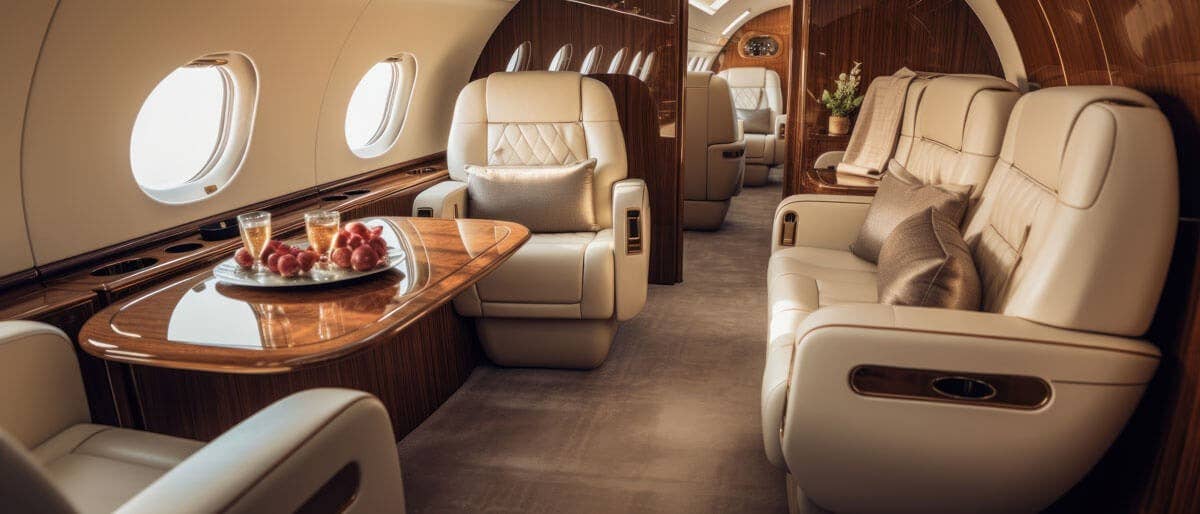Boom CEO Details Cost, Effort Behind Supersonic Flight
Boom Technology founder Blake Scholl talks about the return of supersonic flight on ‘Bring It Home’ podcast.
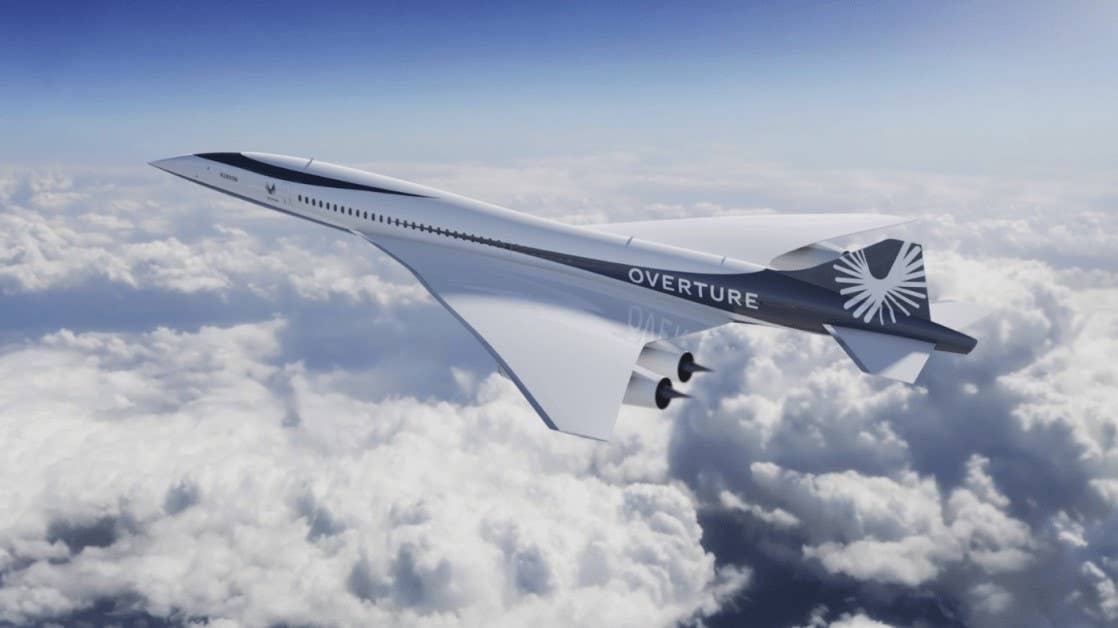
Boom Supersonic’s Overture is intended to carry 64-80 passengers at twice the speed of subsonic airliners. [Courtesy: Boom Supersonic]
Boom Technology CEO Blake Scholl spoke with co-hosts Craig Fuller, founder and CEO of Firecrown Media, and JP Hampstead, strategic analyst at Firecrown, on the latest episode of the Bring It Home podcast Thursday about the return of supersonic air travel.
Bring It Home celebrates the North American manufacturing renaissance, reindustrialization and reshoring taking place across the continent.
Boom Technology is building the first supersonic commercial jetliner since the Concorde at its new factory in Greensboro, North Carolina. Scholl explained why it’s taken so long for the aerospace industry to innovate, whether the Apollo moon landings were good or bad for space exploration, and how aviation startups bring new products to market faster than incumbents.
Scholl decided to pursue his passion for aviation when he took flying lessons while studying computer science in college.
“In my mid-20s, I set a lifetime goal of flying supersonic,” Scholl said. “… I was just waiting to be the first one to find out when I could buy a ticket, but there was just no credible plan to pick up where Concorde left off. I felt like we were sort of watching the slow-motion death of innovation in aviation.”
While the U.S. made huge progress in the first 65 years of flight going from the Wright brothers to the moon landing, Scholl said America has done nothing to innovate since then. He decided after he sold his first startup to Groupon a little over a decade ago that he would pursue supersonic flight.
“I thought I would get two weeks into the research and conclude it was a bad idea or impractical in some ways, but instead what I found was this was a domain that had just gotten no attention from entrepreneurs in a very long time,” Scholl said. “All of the conventional wisdom of why you couldn’t do a supersonic airliner was just wrong, and in fact all of the technology was there, all of the regulations were there, it just needed someone to put together a team and go do it.”
Scholl said he thought Apollo killed space exploration and Concorde killed supersonic flight.
“Both of those were obviously marvelous technical accomplishments, but they were both done as Cold War-era glory projects,” Scholl said. “…They consumed enormous amounts of capital, and they were both done in ways that had no economic viability.”
While the Concorde had the pretense of being used for business, Scholl said its value didn’t add up due to its “uncomfortable” 100-seat limit and charging $20,000 per seat adjusted for inflation.
“It was economically stillborn,” Scholl said. “It never made any sense economically because of the choice of how to do that airplane, and yet the lesson that the industry learned was that supersonic flight doesn’t make any economic sense. There was all this political fallout, like it led to the ban of supersonic flight over land. That had a huge negative impact on innovation.”
- READ MORE: Boom Unveils Supersonic Overture Flight Deck
Scholl said that since then, there hasn’t been anyone to push the envelope on entrepreneurship in aviation. Until now.
“At some point, the world’s going to make the transition to supersonic,” he said.
That’s where Boom Technology and its supersonic commercial jet, the Overture, come in. The 64-seat jet is marketed as an “all-premium supersonic experience” built for speed and comfort.
“One of the things that I just love about this team is we sweat the details,” he said. “Today when you walk into an airliner, it’s kind of like nobody cared. There’s seams and gaps and weird-colored plastic everywhere. It tends to have loud background noises and the PA volume is never right. … We want to sweat all the details and build an experience that is refined, comfortable and tranquil, almost like an oasis in the sky.”
Boom Technology has predominantly been funded by private venture capital. Scholl said there’s probably more innovation on the financing side of the business than in the technical aspects of the plane itself.
“It’s a capital-intensive effort,” Scholl said. “It’s going to cost billions to get the airplane all the way done, and it’s going to take time. So we’re sort of inventing the financing model for that as we go, and we’re fortunate to have just some of the best investors on the planet backing the company.”
Several carriers, from United Airlines and American Airlines to Japan Airlines, have already placed preorders for Overture supersonic jets.
Scholl said there’s a big opportunity in Boom Technology to build something of scale and significance that will be a “win for passengers, a win for airlines and a win for all the investors impacted.”
Other headlines discussed in this episode include:
- Scout Motors’ new product line being built at its $2 billion electric vehicle plant in Blythewood, South Carolina.
- A recent article by The New York Times exploring why there is hope for U.S. factory towns impacted by “China shock.”
The Bring It Home podcast is currently on YouTube and will soon be available on other podcast platforms.
Editor’s Note: This article first appeared on FreightWaves.

Sign-up for newsletters & special offers!
Get the latest FLYING stories & special offers delivered directly to your inbox

